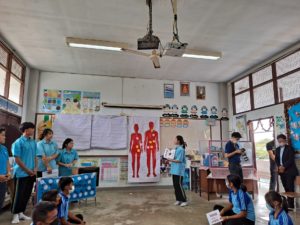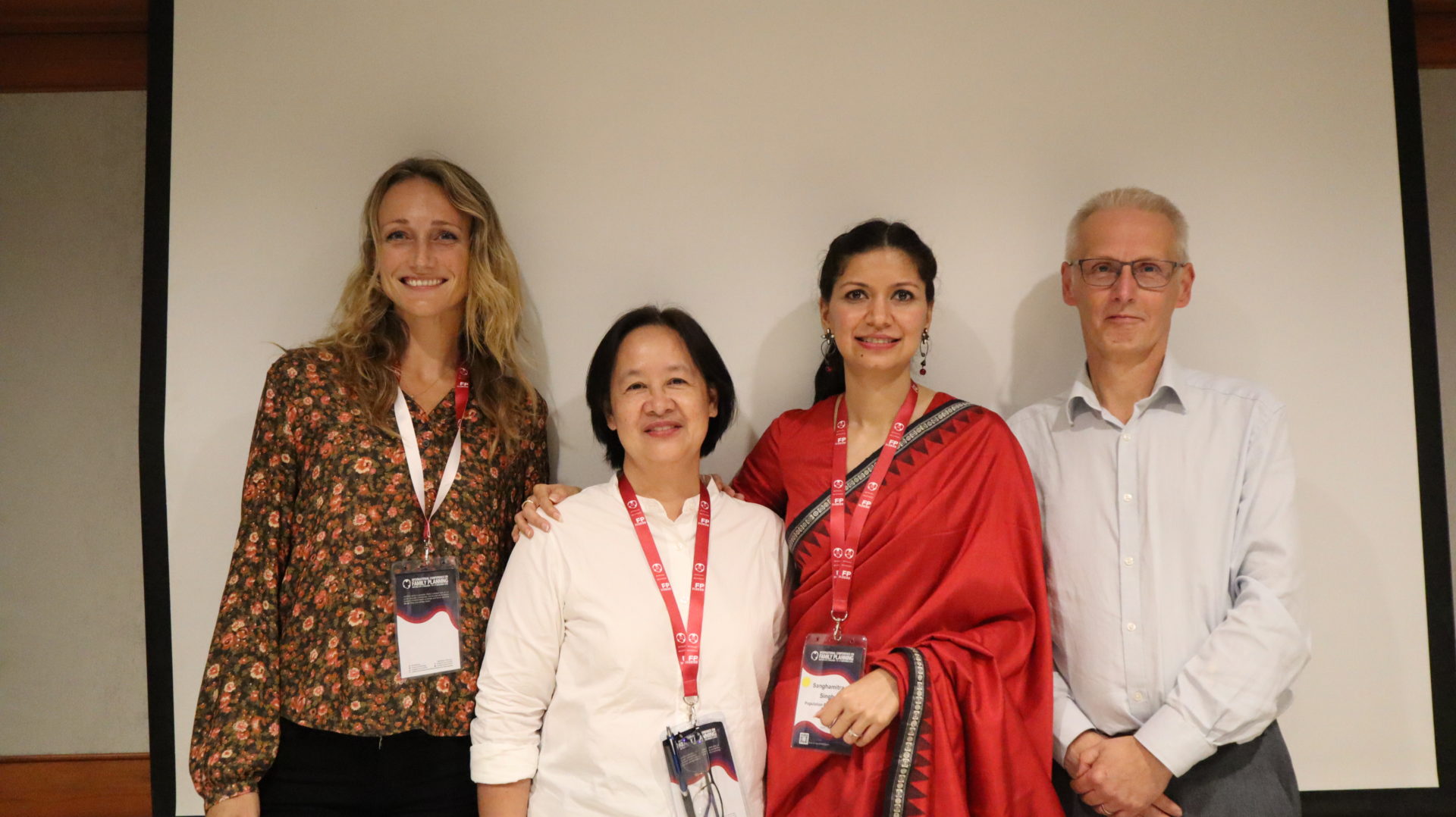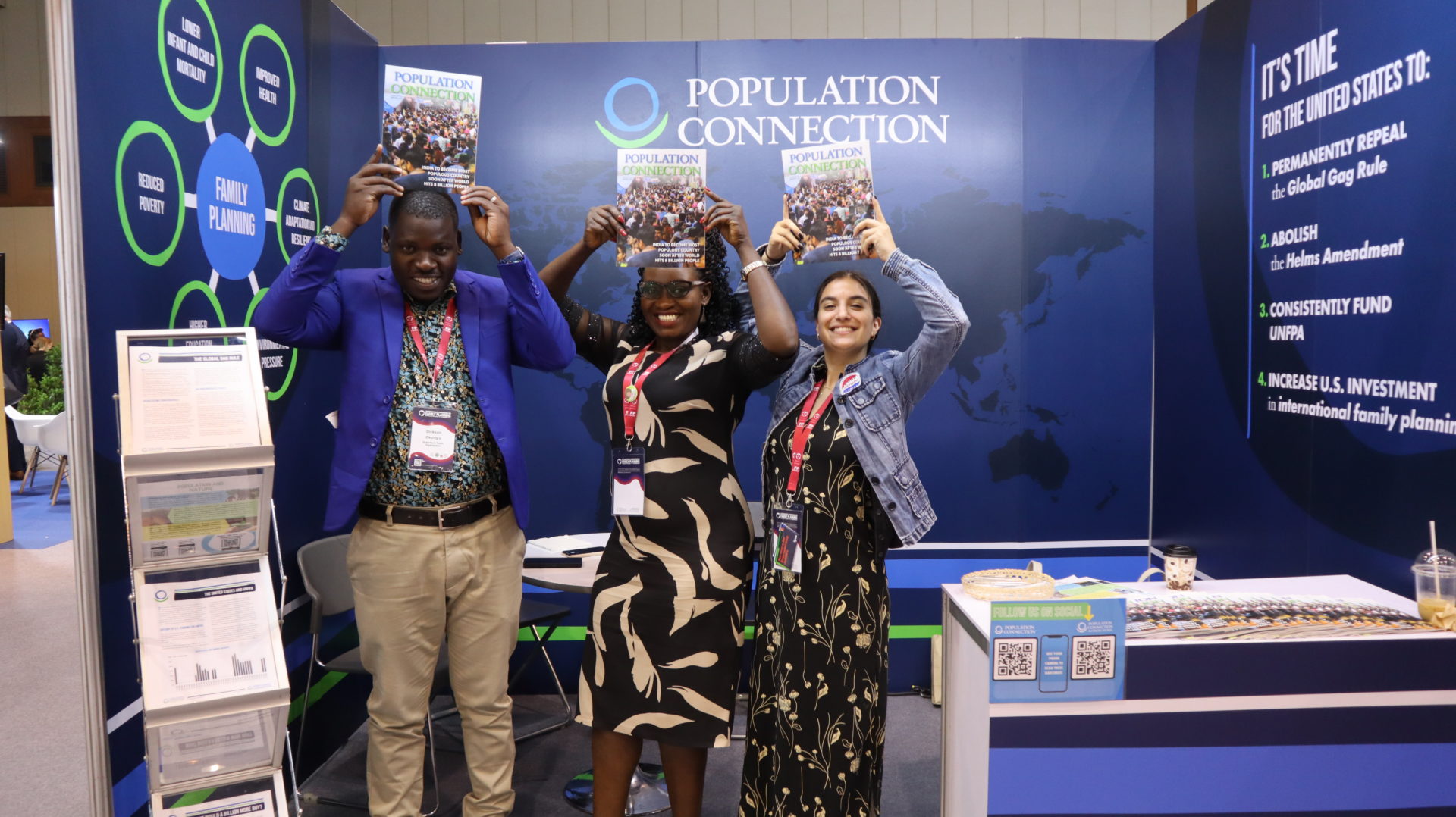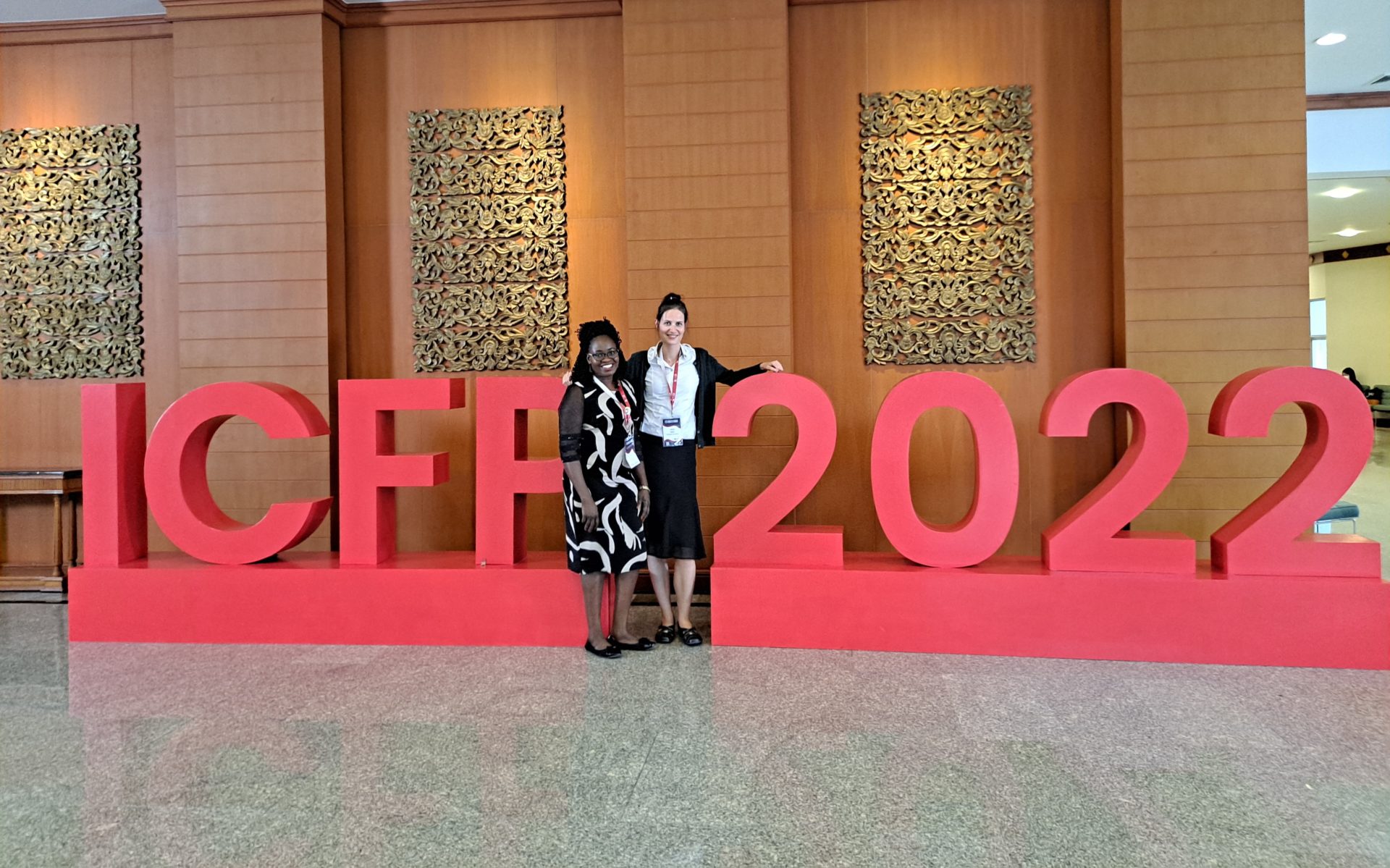Talking family planning in Thailand: ICFP 2022
Written by Olivia Nater | Published: November 30, 2022
From November 11-17, 2022, a delegation from Population Connection attended the International Conference on Family Planning, the world’s largest scientific conference on family planning and reproductive health. Around 3,500 people from across the world came together in Pattaya, Thailand, to share knowledge and advocate for universal access to contraception and safe abortion.
Prior to the start of the conference, our team had the privilege of visiting sites around Pattaya that showcase successful family planning and sustainability initiatives at the community level. One of the highlights was Wat Koh School, a project supported by the Population and Community Development Association (PDA). PDA was founded by Mechai Viravaidya, aka “Mr. Condom,” the man behind Thailand’s highly successful family planning program, which led to a drop in the fertility rate from 4.6 children per woman in 1974 to only 1.3 today. At Wat Koh School, kids receive comprehensive sex education at an early age and learn how to sustainably grow vegetables which are then shared with the local community.

During the conference, Population Connection hosted a booth in the busy exhibit hall and distributed information on our advocacy work and on the links between family planning and environmental issues. We met and exchanged contact information with many delegates from like-minded organizations doing excellent work across mainly Africa and Asia, as well as North America and Europe. You’ll surely be hearing from some of them at future virtual events that we host!
Population Connection Senior Analyst Hannah Evans took part in a panel discussion on family planning, the environment and the Sustainable Development Goals organized by our UK-based friends Population Matters. Hannah spoke about how health and education solutions are key to fighting climate change and was joined on the panel by Dr. Joan Castro of PATH Foundation Philippines, Inc. (PFPI) and Dr. Sanghamitra Singh of Population Foundation of India (PFI). Both presented some inspiring PHE* case studies from their countries.
*PHE stands for Population-Health-Environment and aims to advance human development and uplift communities by integrating family planning and health care into environmental protection efforts. This holistic approach is sometimes also called PED or Population-Environment-Development.

We attended many other interesting sessions on the importance of access to family planning. Delegates from countries with rapid population growth, such as Pakistan, Tanzania and Niger, were particularly cognizant of the critical linkages between family planning and environmental and development issues. One delegate from Ethiopia, Ato Semere Seleshi, explained how rapid population growth in and around ecologically important Bale National Park is causing deforestation, soil erosion, resource shortage and biodiversity loss. His organization, PHE Ethiopia Consortium, is working to improve contraceptive prevalence in this rural area, which is also helping to boost household income.
I was particularly struck by a session on family planning and climate change in the Sahel. This region of northern Africa is facing escalating drought, hunger and conflict as a result of the climate crisis and high population pressure. Niger, one of the 10 countries in the Sahel, has the highest fertility rate in the world, with an average of 6.6 children per woman. The reason is deep gender inequality which manifests itself in persistently high rates of child marriage, polygyny, unmet contraceptive need, teen pregnancy and a lack of educational and career opportunities for women and girls.
The Nigerien panelist, Sani Ayouba, representing youth organization JVE Niger, noted that “population and climate change are directly linked.” He said he had just come from COP27 (the international climate conference, which, perhaps tellingly, took place in Egypt during the same week), and that the population issue seemed to be taboo there. Lou Compernolle, a spokesperson from OASIS, an organization working on women’s empowerment in the Sahel, also lamented this inappropriate censorship, and stated,
“What’s happening in the Sahel deserves more attention. There are so many lives on the line.”
ICFP delegates were overwhelmingly in favor of drawing the critical linkages between family planning and the environment, however. In another session on climate change and sexual and reproductive health and rights, Dr. Amrita Namasivayam, who was involved in the modelling for Project Drawdown’s family planning and education solution, presented the science behind her work. Her models showed that achieving a 2050 population that is 8.4% smaller than projected (by removing barriers to family planning and education) could lead to a reduction in atmospheric greenhouse gases of almost 70 Gigatons, making this a key climate solution.

Overall, it was very encouraging to hear about the fantastic family planning work being done by organizations around the world. At Population Connection, we hope to continue building partnerships with some of them and together advance the crucial goal of making family planning and reproductive health care available to all.

